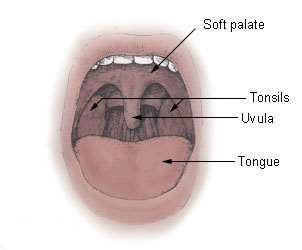Conditions Explained
Disclaimer:
This website is intended to assist with patient education and should not be used as a diagnostic, treatment or prescription service, forum or platform. Always consult your own healthcare practitioner for a more personalised and detailed opinion
Snoring

We have selected the following expert medical opinion based on its clarity, reliability and accuracy. Credits: Sourced from the website Patient UK, authored by Dr Oliver Starr (see below). Please refer to your own medical practitioner for a final perspective, assessment or evaluation.
Overview
Snoring is a rattling noise made as we breathe during our sleep. It may not cause any problems to the person who snores, but it may be so noisy that it stops other people from sleeping. Sometimes it also interrupts the sleep of the person who snores, making them tired in the daytime. Many lifestyle factors make snoring more likely and can be changed. If snoring becomes a problem, there are some treatments which can help. You should see a doctor about snoring if it is affecting your sleep, making you tired in the daytime, or upsetting other people.
What is snoring?
Snoring is a very annoying noise that people, but never you, make while asleep. Generally, people always deny they snore, but accuse their partner of snoring all the time! At least 40% of people in Britain are thought to snore regularly.
Causes
What causes snoring?
Snoring is due to vibrations in the soft tissues of the upper airway as we breathe. It can happen in any part of the upper airway:
- The soft palate. This is the part of the roof of your mouth which is right at the back of your mouth.
- The back of your tongue.
- The back of your throat. It may involve your tonsils, which are lumpy bits of tissue on either side of the back of your throat. It may involve your uvula, which is the dangly bit of flesh which hangs in the middle of the back of your throat.
- A defect in your nose can sometimes cause snoring.

Why do people snore?
- Being overweight: that is the number one cause. Too much fat in your neck squashes your throat and causes snoring.
- Being drunk! If you've had too much to drink before bedtime, the muscles in your neck relax and make you snore.
- Taking sleep pills can relax you too much and lead to snoring.
- Having something wrong with the back of your throat, like a very low soft palate.
- Smoking: it can lead to the back of your throat being a bit swollen, causing snoring.
Snoring can happen at any age, to children or adults. It is most common between the ages of 40 and 60. It is more common in men than in women. In children it's usually because their nose is a bit blocked from a cold, or because they have very big tonsils or adenoids; in adults it is more usually some weakness at the back of the throat or being overweight.
What problems can snoring cause?
Generally, the problem is for the person sleeping next to you!
On a serious note, some people say that snoring has led to the breakdown of their marriage. But generally snoring isn't harmful for your health. The only exception is if you are overweight and literally stop breathing for 5-10 seconds in your sleep. That is something called obstructive sleep apnoea and can be harmful.
Some people wake themselves up from snoring too loudly and so have a disturbed night, leaving them feeling tired in the morning.
Diagnosis
Do I need any tests?
If your snoring isn't troubling you or anybody else, you do not need to see a doctor.
You should see your GP if:
- You wake up gasping in the night regularly (this could indicate something else wrong, like a problem with your heart).
- Your partner says you stop breathing during the night (if you are overweight and this happens then you might have obstructive sleep apnoea).
- You are feeling too tired or sleepy during the day to do the things you need to do, like work or driving safely.
- Your snoring is really affecting your partner or your relationship.
Your GP will ask you some questions and examine you. They will want to check your height and weight, and examine your nose, mouth, throat and neck. Usually no tests are needed. If the snoring is really bad they may make a referral to an ear nose and throat doctor.
Treatment
How to stop snoring
There are lots of remedies and information sites, but not all of the advice works. Here is our guide for things that are generally accepted to work.
Snoring solutions
- Lose weight if you are overweight! (Sorry, I know you've heard that one before). But getting down to a normal body mass index is sometimes all you need to do to stop snoring.
- Drink less alcohol, or at least try to go to bed after giving yourself enough time to sober up.
- Learn to lie on your side in your sleep. Lying on your back often puts pressure on the back of your throat, causing snoring.
Devices and gadgets
- Earplugs: not for you, for your partner!
- Nasal dilators: These may be helpful if the snoring noise is mainly coming from your nose. It is a device placed inside the nose before going to sleep to hold the nose open.
- Mandibular advancement device: There are a number of splints and shields which are made to push your lower jaw and tongue forward. You put the device in your mouth before going to sleep. It makes more space in the airway and may help if the snoring comes from the base of your tongue. These are known to be more effective if fitted specifically for your mouth by an experienced dentist.
- Chin straps: These are straps or bands you put under your chin to hold your mouth closed during the night. This is to force you to breathe through your nose rather than your mouth. This may be helpful if the snoring is coming from your mouth.
- Vestibular guard: This is a plastic mouth guard. You put it in your mouth before going to sleep to close off your mouth. This forces you to breathe through your nose. This may be helpful if the snoring is coming from your mouth.
Most of these solutions can't be prescribed but are commercially available.
Beware: there is not a great deal of scientific evidence behind most snoring treatments you can buy out there. Be careful not to spend too much - try the simple things first: weight loss and less alcohol.
Medicines
If you have a really bad cold, then a short course of a nasal decongestant spray could help. But these should only be used for a few days otherwise they damage the inside of your nose.
Operations
Surgery hardly ever helps for snoring, but unfortunately some people get so desperate that they will try anything.
Be careful: try to get a second opinion from another ear nose and throat surgeon before committing to undergoing surgery.
- Operations on the nose: If you have nasal polyps, removing them may stop snoring. If the midline of your nose is crooked (nasal septum deviation) having this straightened may help (but not always).
- Tonsillectomy: This is most commonly of benefit for children who snore. Usually both tonsils and adenoids are removed. It is not done for snoring alone, but may be useful if the large tonsils are causing other problems - for example, obstructive sleep apnoea or regular bouts of tonsillitis.
- Uvulopalatopharyngoplasty (UPPP): This is an operation done with a general anaesthetic. Parts of tissue in and around the mouth and throat are removed, creating more space. This includes shortening the strip of tissue that hangs in the middle at the back of your mouth (the uvula) and making incisions in your soft palate at the back of your mouth. It can help snoring, but only temporarily and, be warned, it is extremely painful afterwards.
- Laser-assisted uvulopalatoplasty (LAUP): This is a similar procedure but done with a laser. The laser burns away the uvula and some of the soft palate.
- Radiofrequency ablation of the soft palate: This stiffens the soft palate to stop it vibrating so much. It is done with an injection to numb the roof of the mouth (a local anaesthetic). A device called an electrode is put into the roof of your mouth. Radiofrequency waves are sent into your soft palate through the electrode.
- Soft palate implants: These are implants injected into your soft palate, which stiffen it. This should stop it vibrating so much. This is also done with a local anaesthetic.
About the author
Dr Oliver Starr
MBChB, BMedSc, MRCS, MRCGP, DRCOG
Dr Oliver Starr is a general practitioner in Hertfordshire. He is an undergraduate tutor at University College Medical School, a general practice appraiser and a case assessor at the National Perinatal Epidemiology Unit, University of Oxford. Other interests include medical law, particularly regarding clinical negligence. Dr Starr is a council member of the Cameron Fund charity.
Recommended websites
For further reading go to:
_______________________________________________________________________________________________________________________
Are you a healthcare practitioner who enjoys patient education, interaction and communication?
If so, we invite you to criticise, contribute to or help improve our content. We find that many practicing doctors who regularly communicate with patients develop novel and often highly effective ways to convey complex medical information in a simplified, accurate and compassionate manner.
MedSquirrel is a shared knowledge, collective intelligence digital platform developed to share medical expertise between doctors and patients. We support collaboration, as opposed to competition, between all members of the healthcare profession and are striving towards the provision of peer reviewed, accurate and simplified medical information to patients. Please share your unique communication style, experience and insights with a wider audience of patients, as well as your colleagues, by contributing to our digital platform.
Your contribution will be credited to you and your name, practice and field of interest will be made visible to the world. (Contact us via the orange feed-back button on the right).